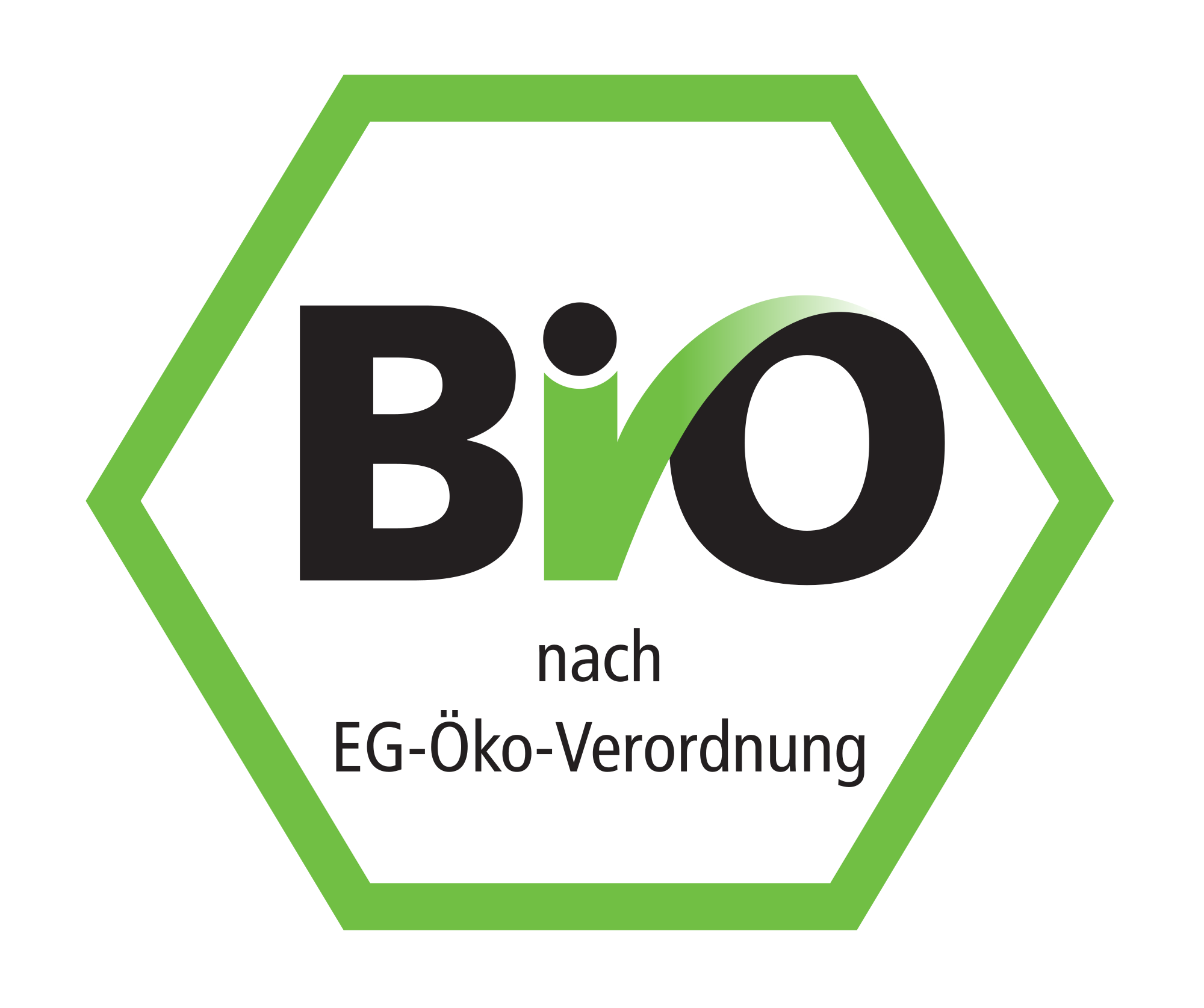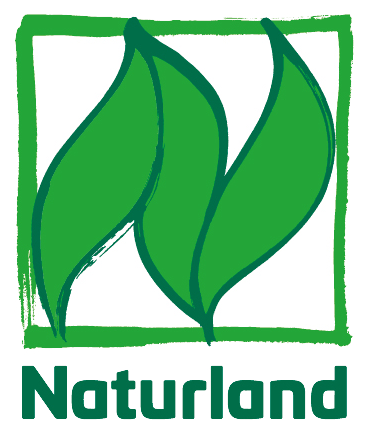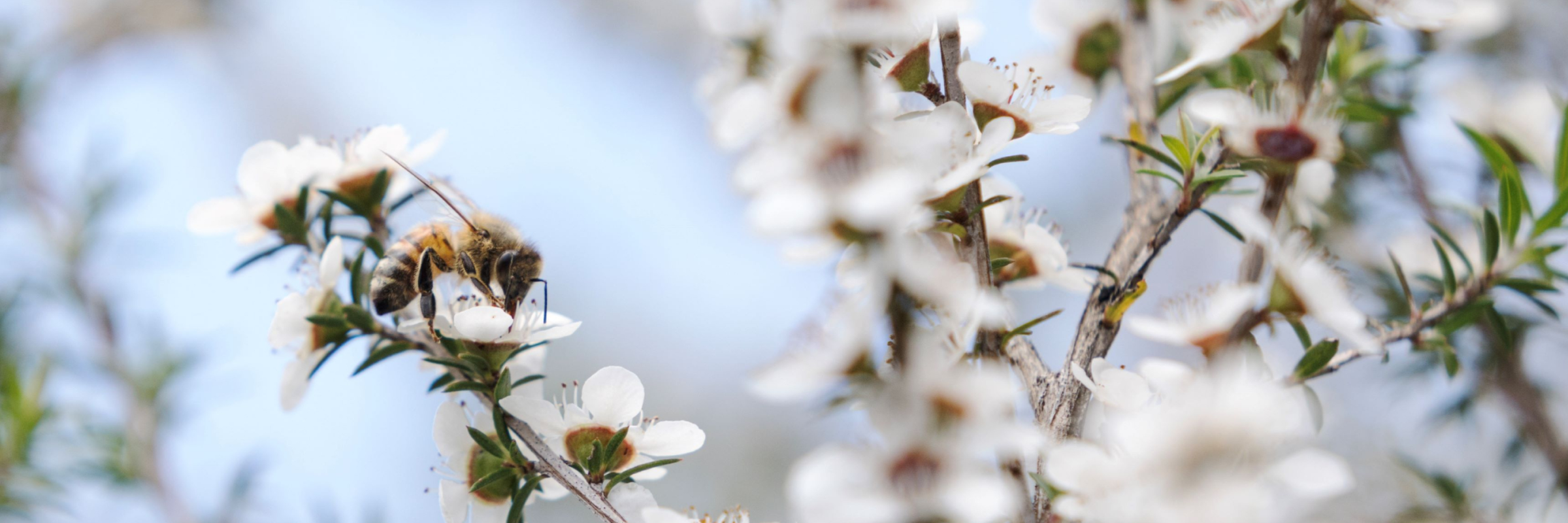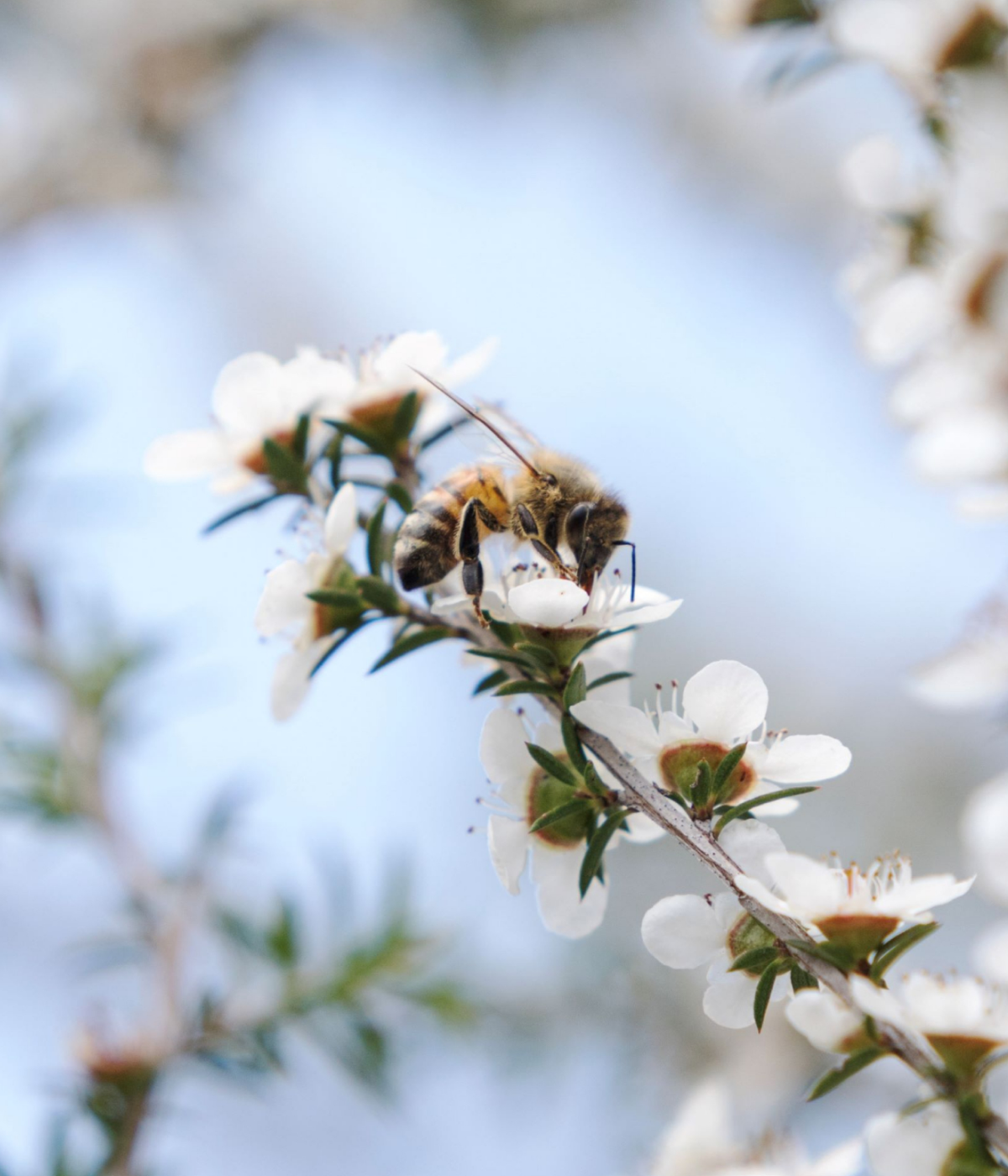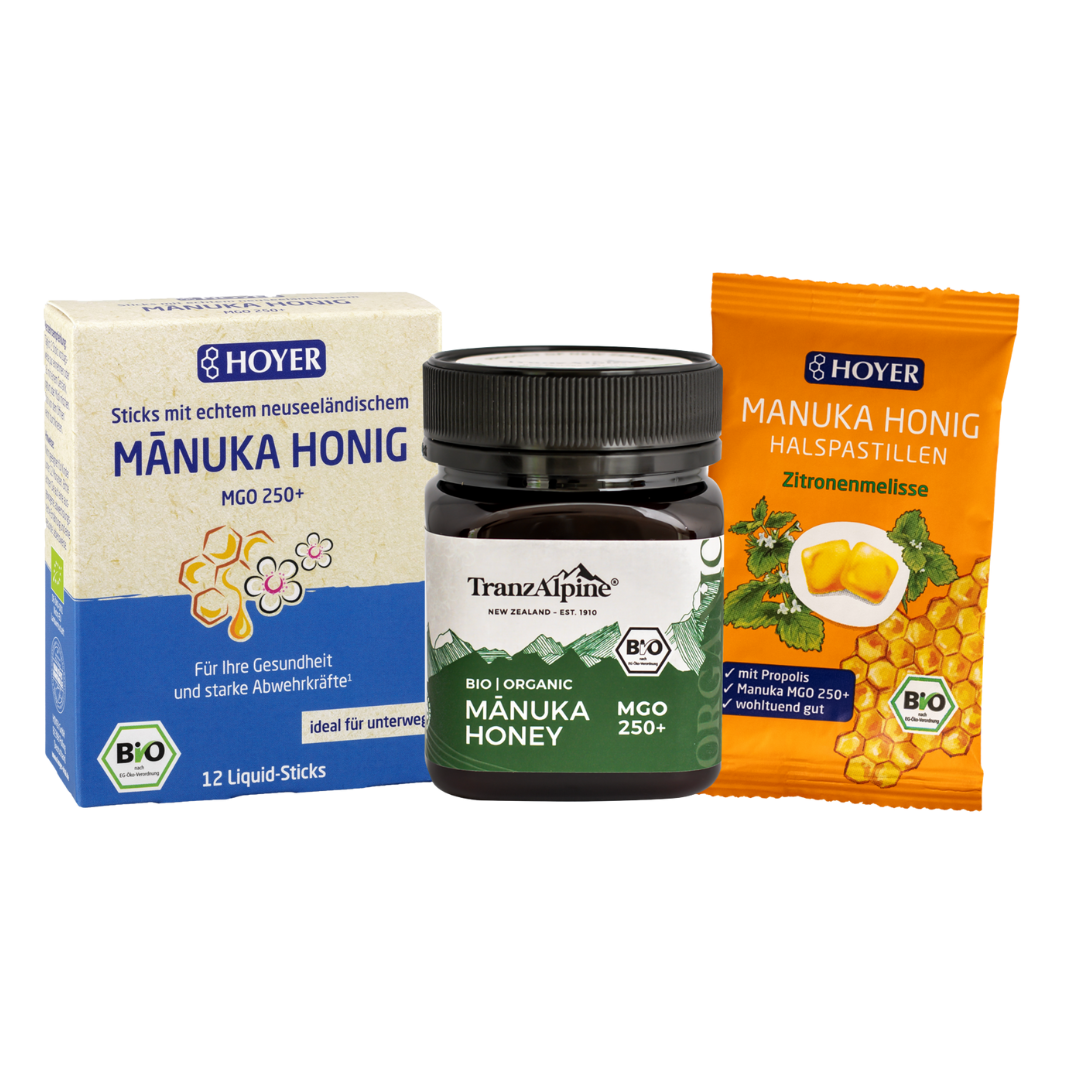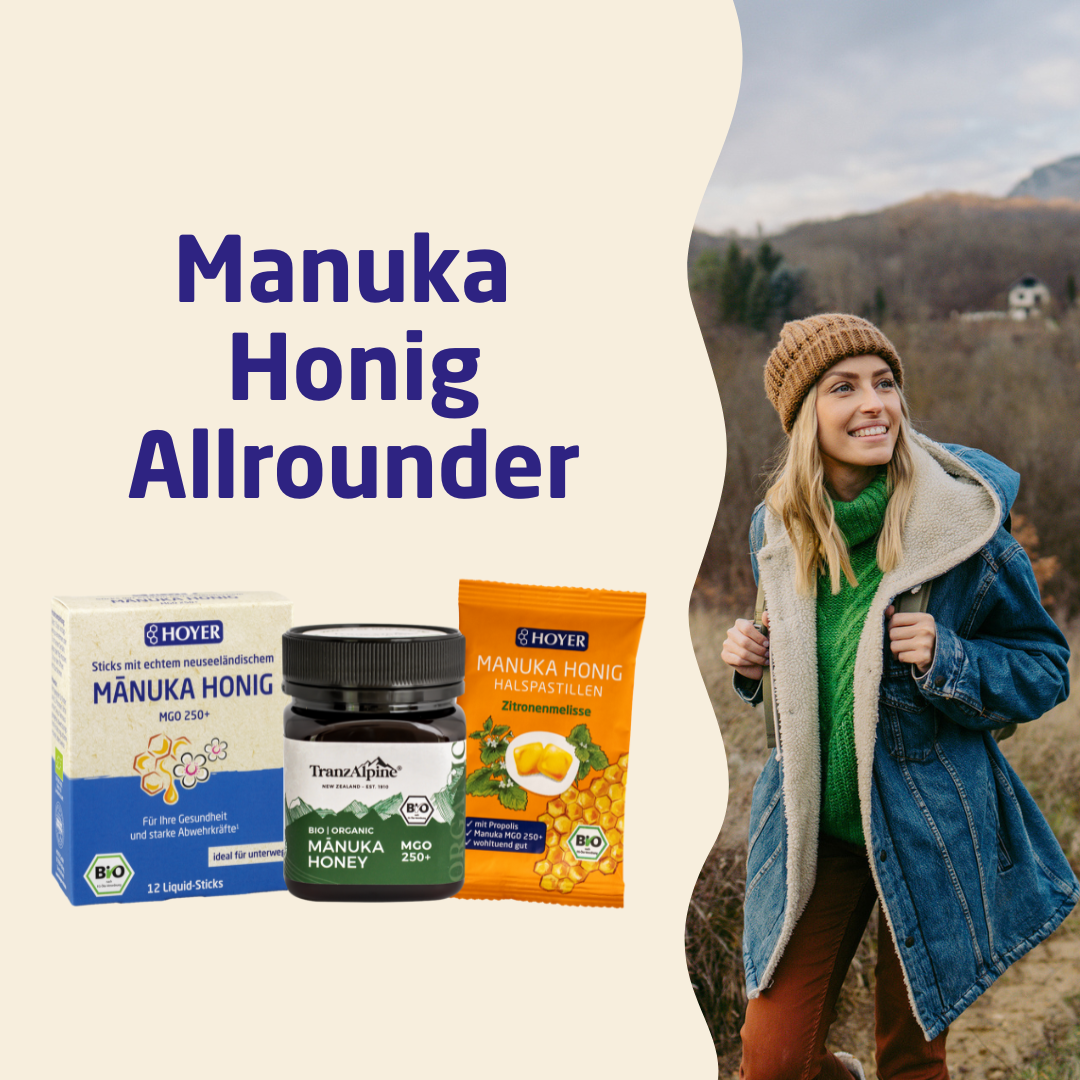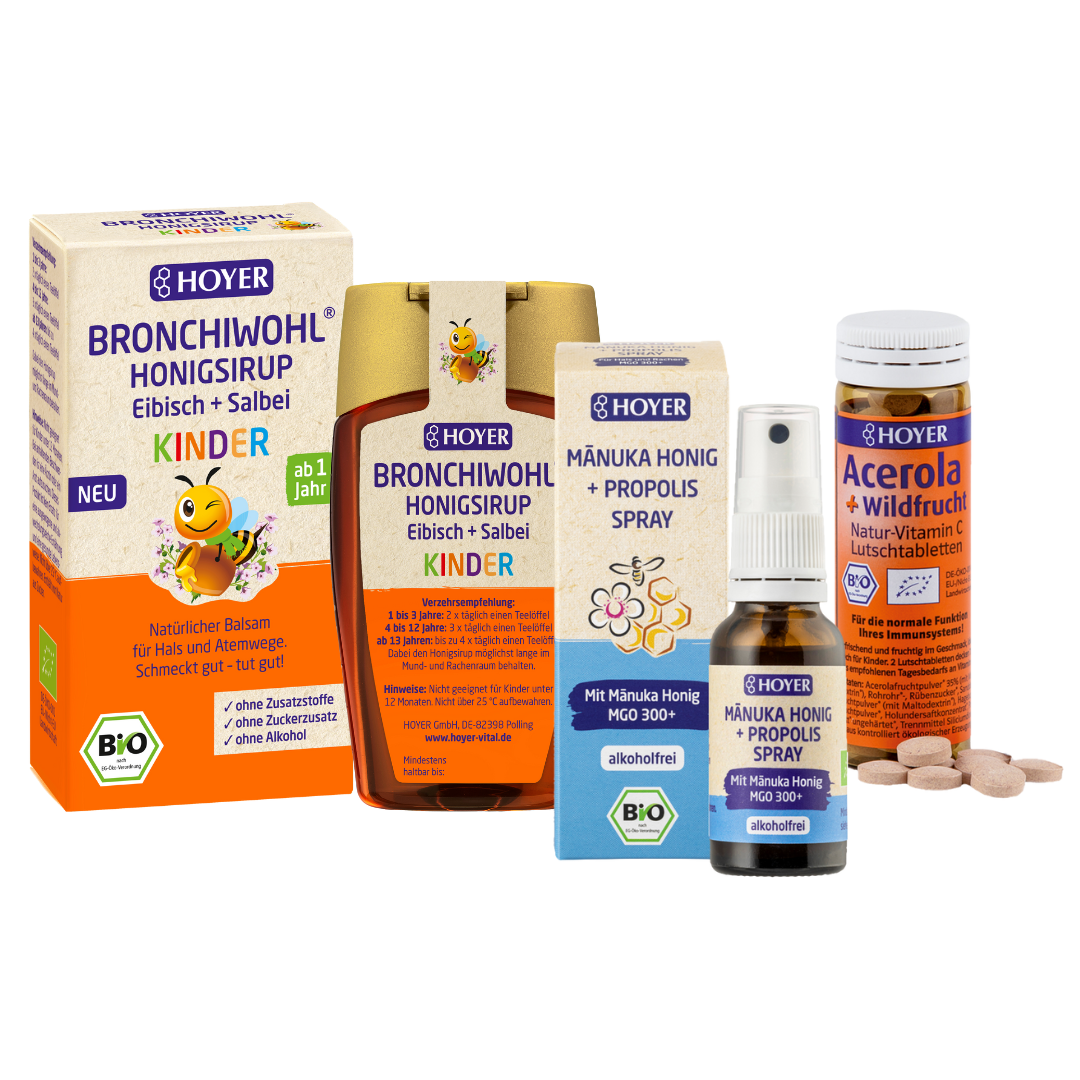13 products
-
TranzAlpine Organic Manuka Honey MGO 400+
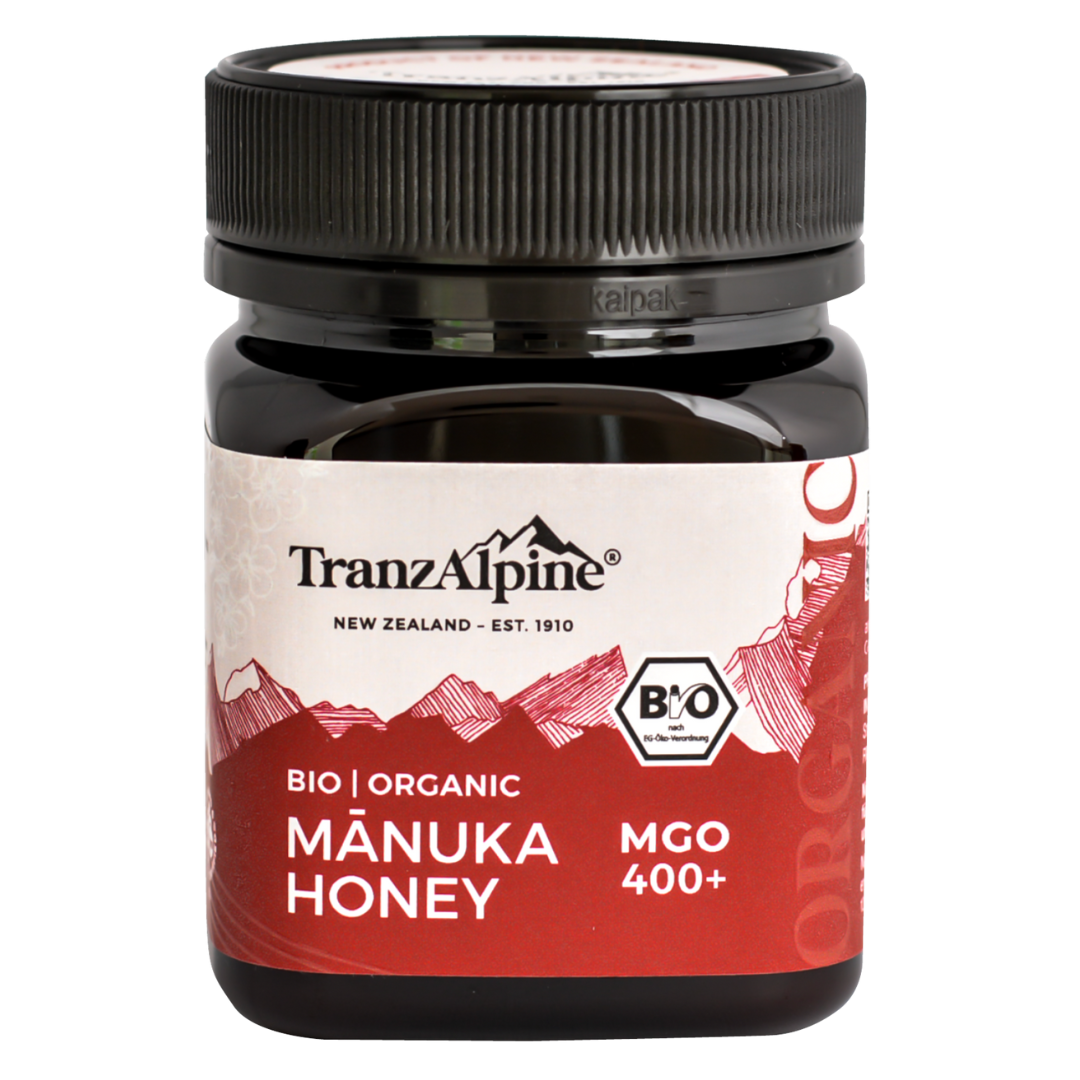
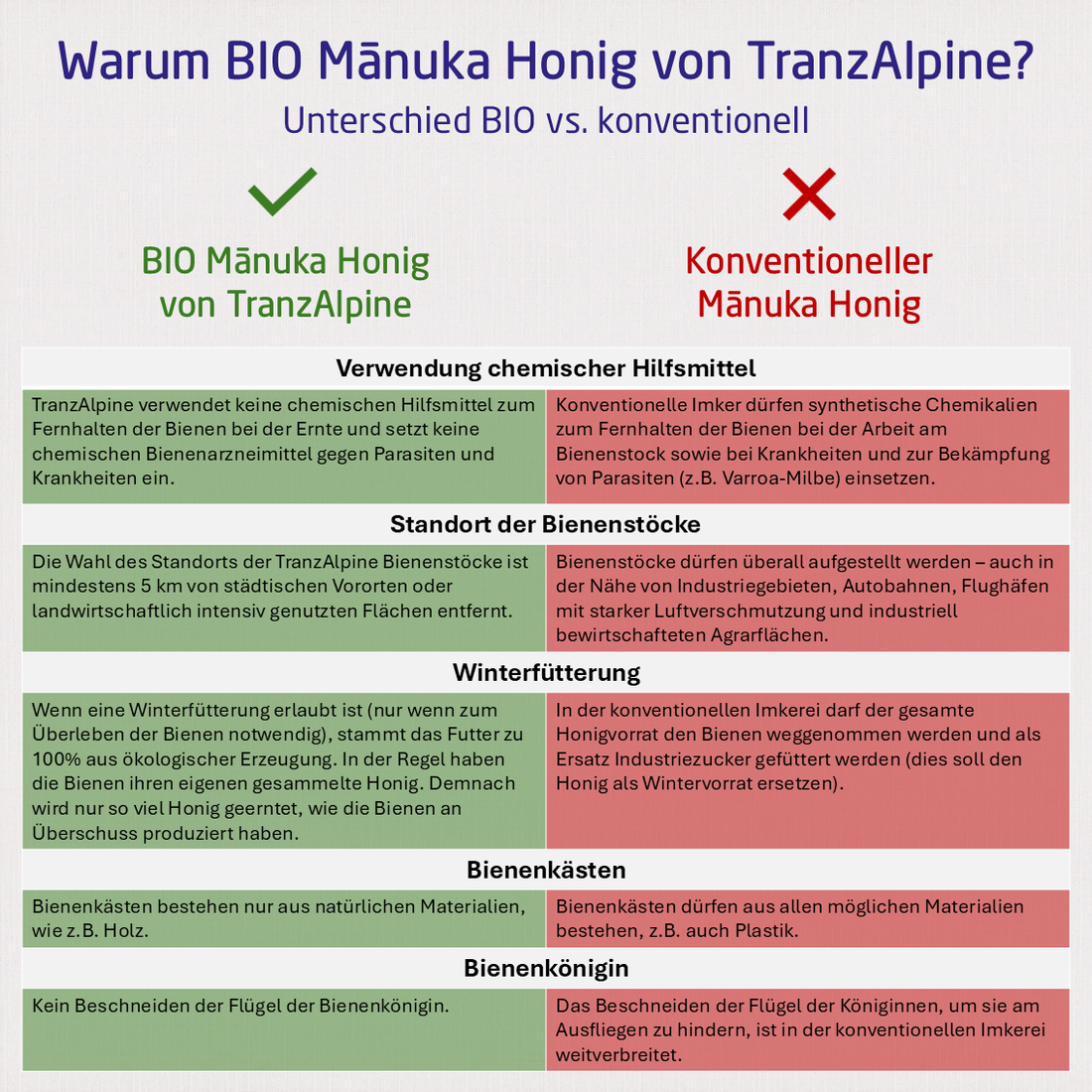 Vendor:TranzAlpine Organic Manuka Honey MGO 400+TranzAlpine
Vendor:TranzAlpine Organic Manuka Honey MGO 400+TranzAlpine- Regular price
-
€56,99 - Regular price
-
- Sale price
-
€56,99 - Unit price
-
€227,96 per kg
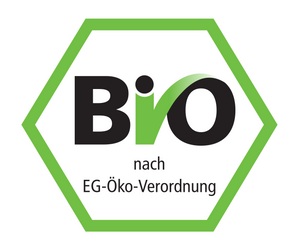
Quick view
-
TranzAlpine Organic Manuka Honey MGO 250+
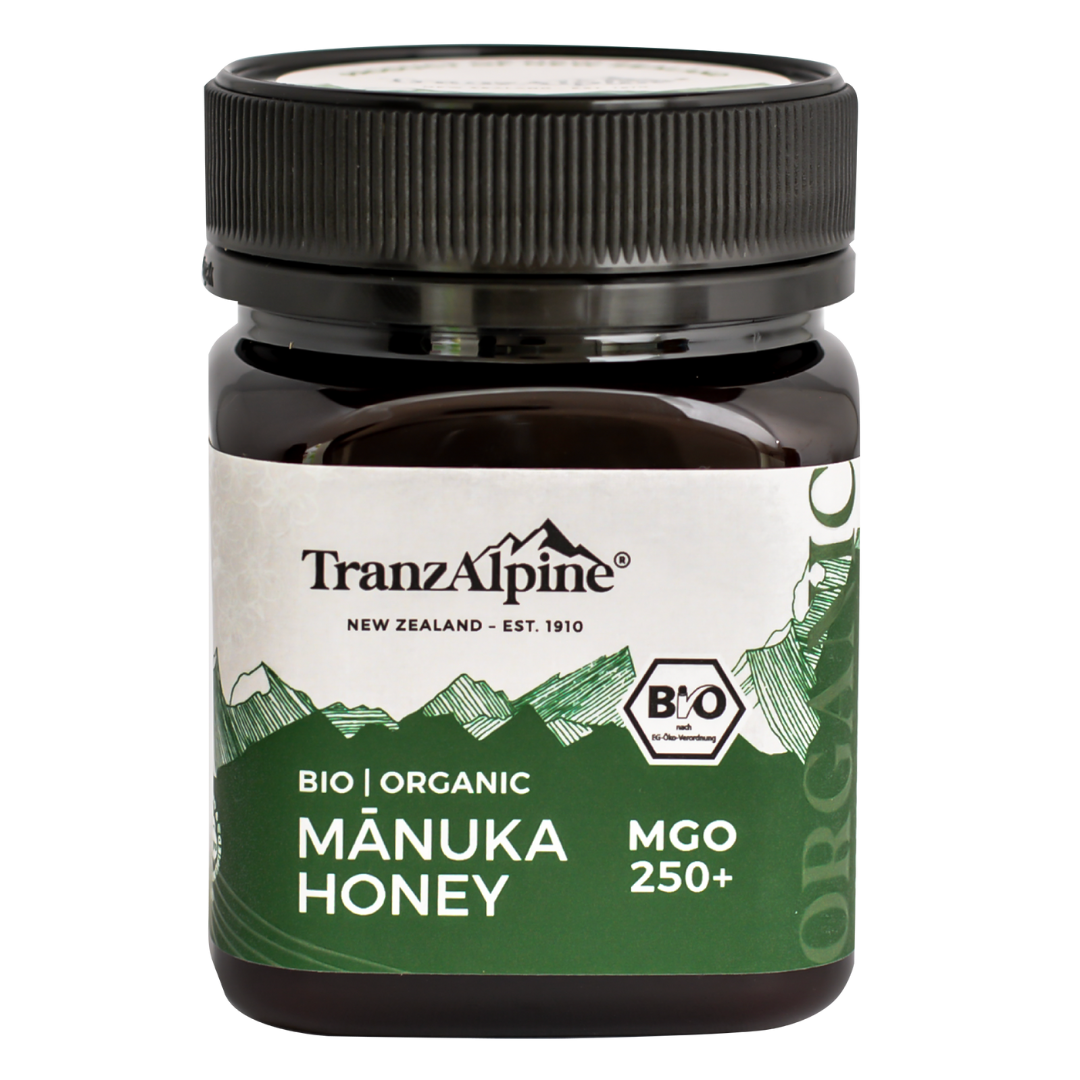
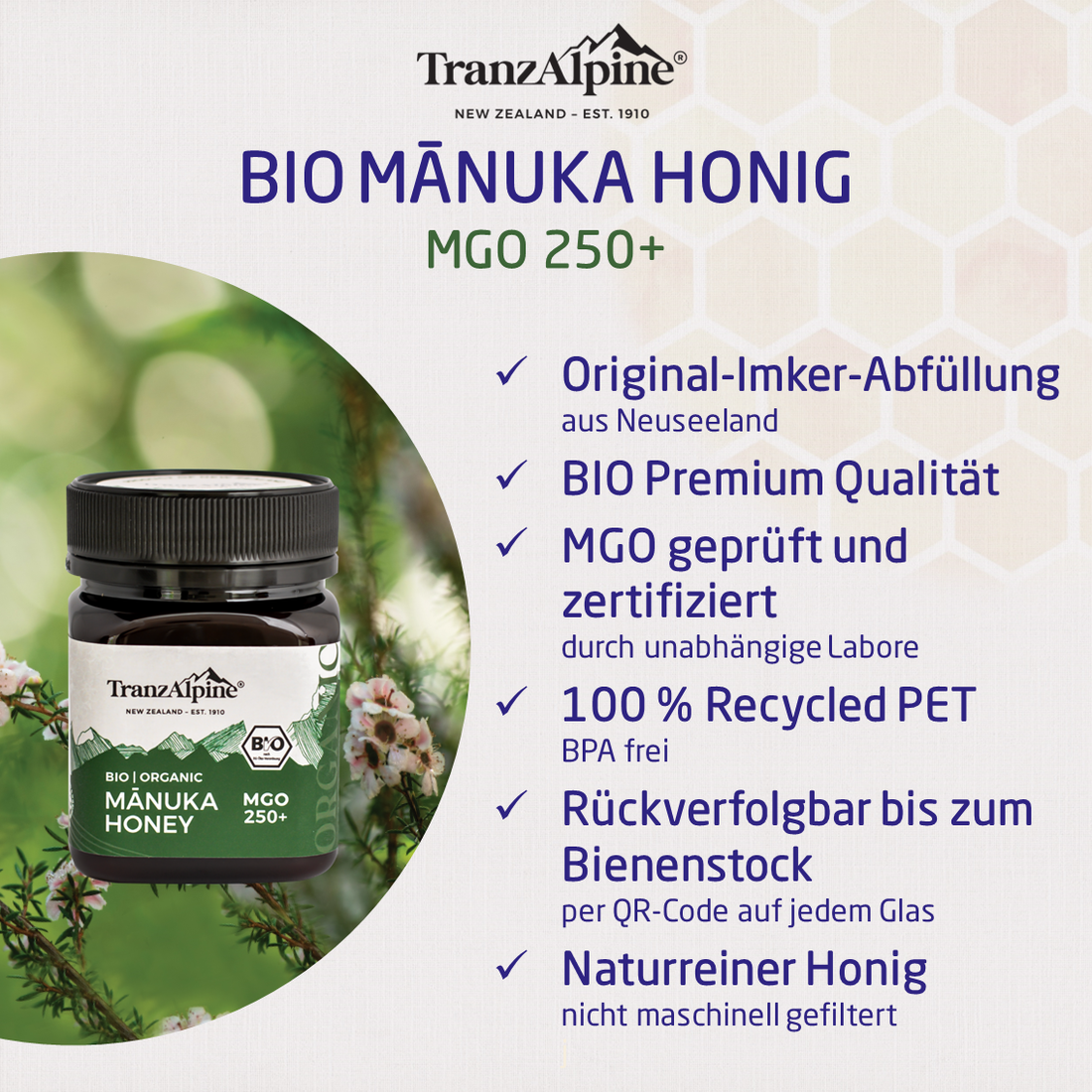 Vendor:TranzAlpine Organic Manuka Honey MGO 250+TranzAlpine
Vendor:TranzAlpine Organic Manuka Honey MGO 250+TranzAlpine- Regular price
-
€34,99 - Regular price
-
- Sale price
-
€34,99 - Unit price
-
€139,96 per kg

Quick view
-
Organic Manuka Honey MGO 200+ TranzAlpine
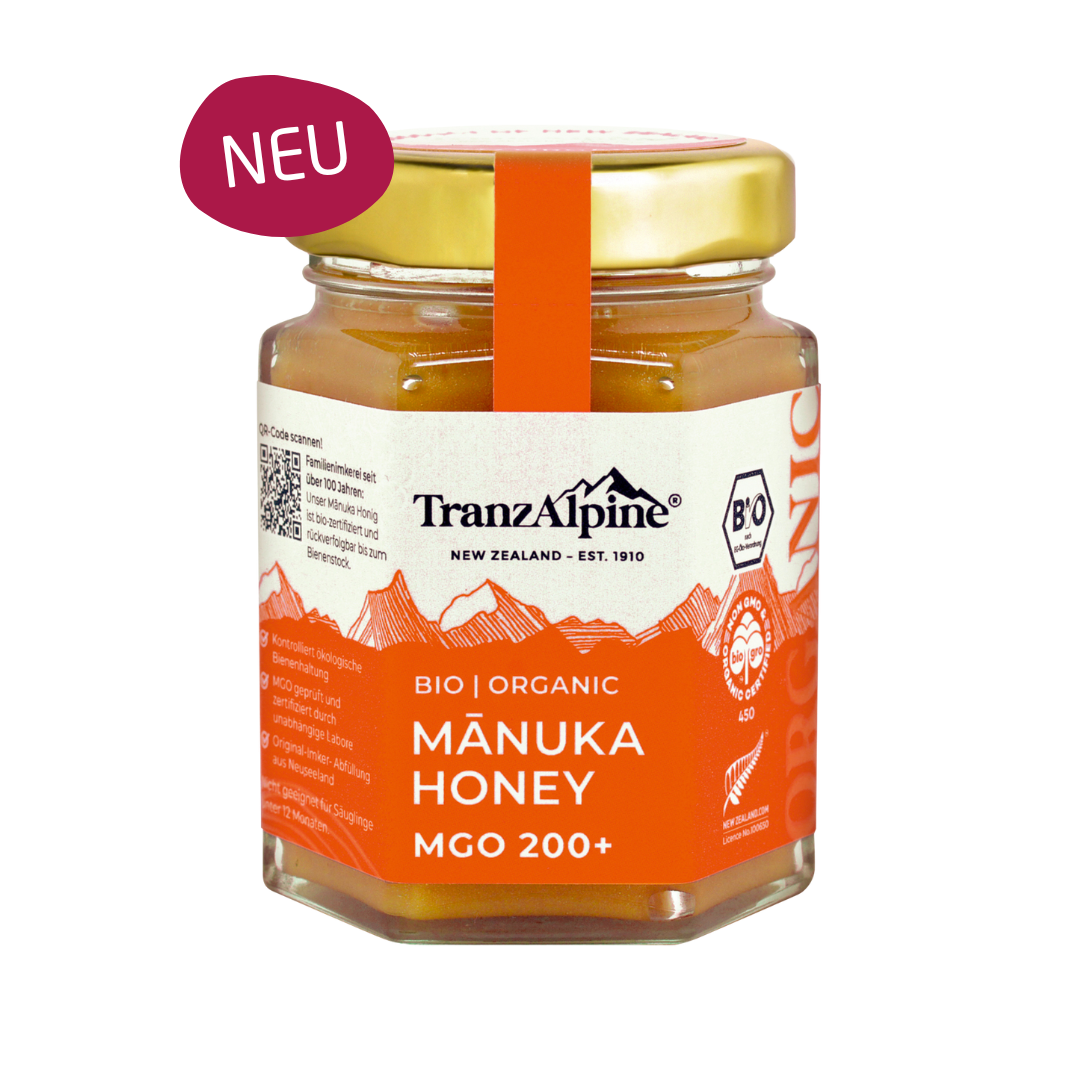
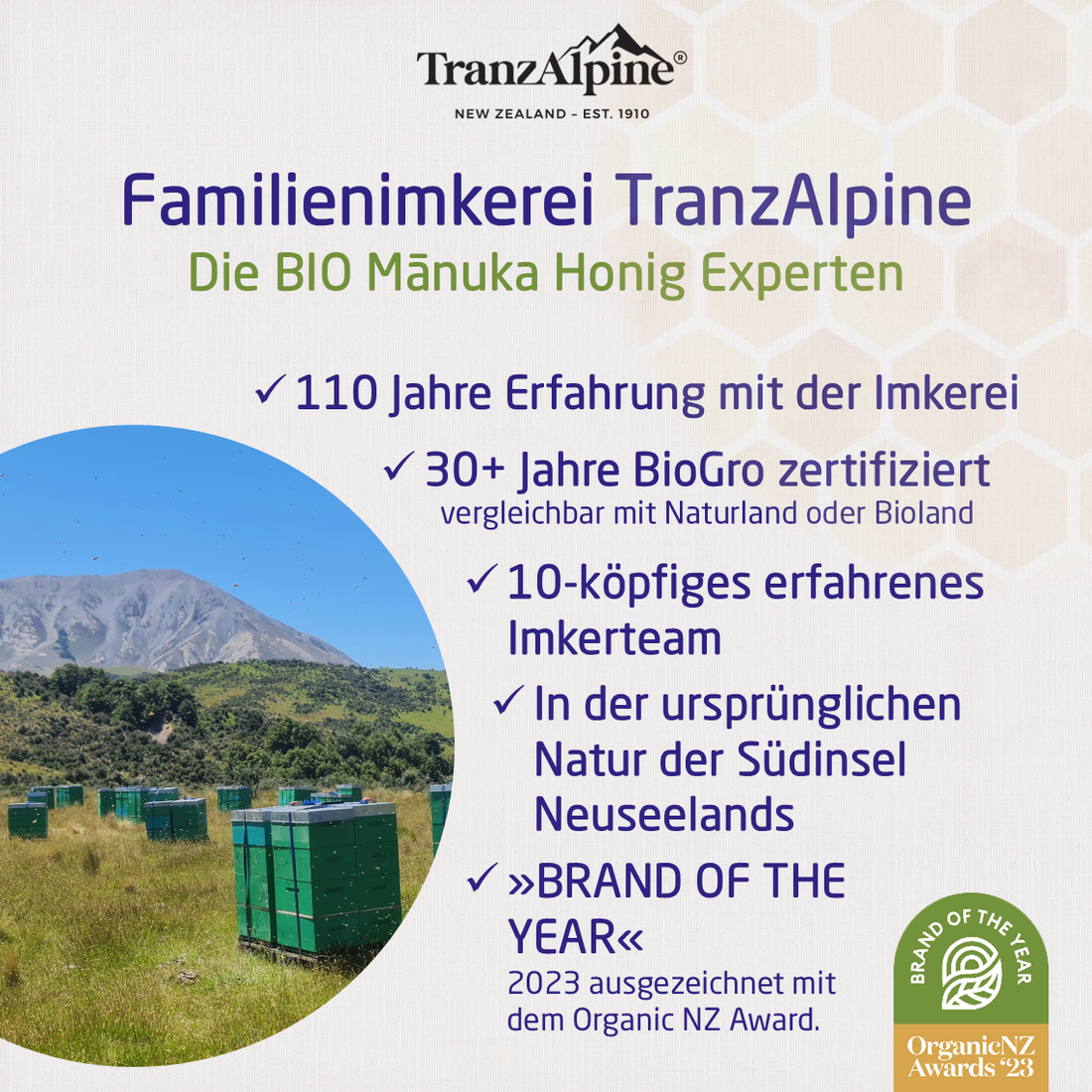 Vendor:Organic Manuka Honey MGO 200+ TranzAlpineTranzAlpine
Vendor:Organic Manuka Honey MGO 200+ TranzAlpineTranzAlpine- Regular price
-
€8,79 - Regular price
-
- Sale price
-
€8,79 - Unit price
-
€125,57 per kg

Quick view
-
TranzAlpine Organic Manuka Honey MGO 300+
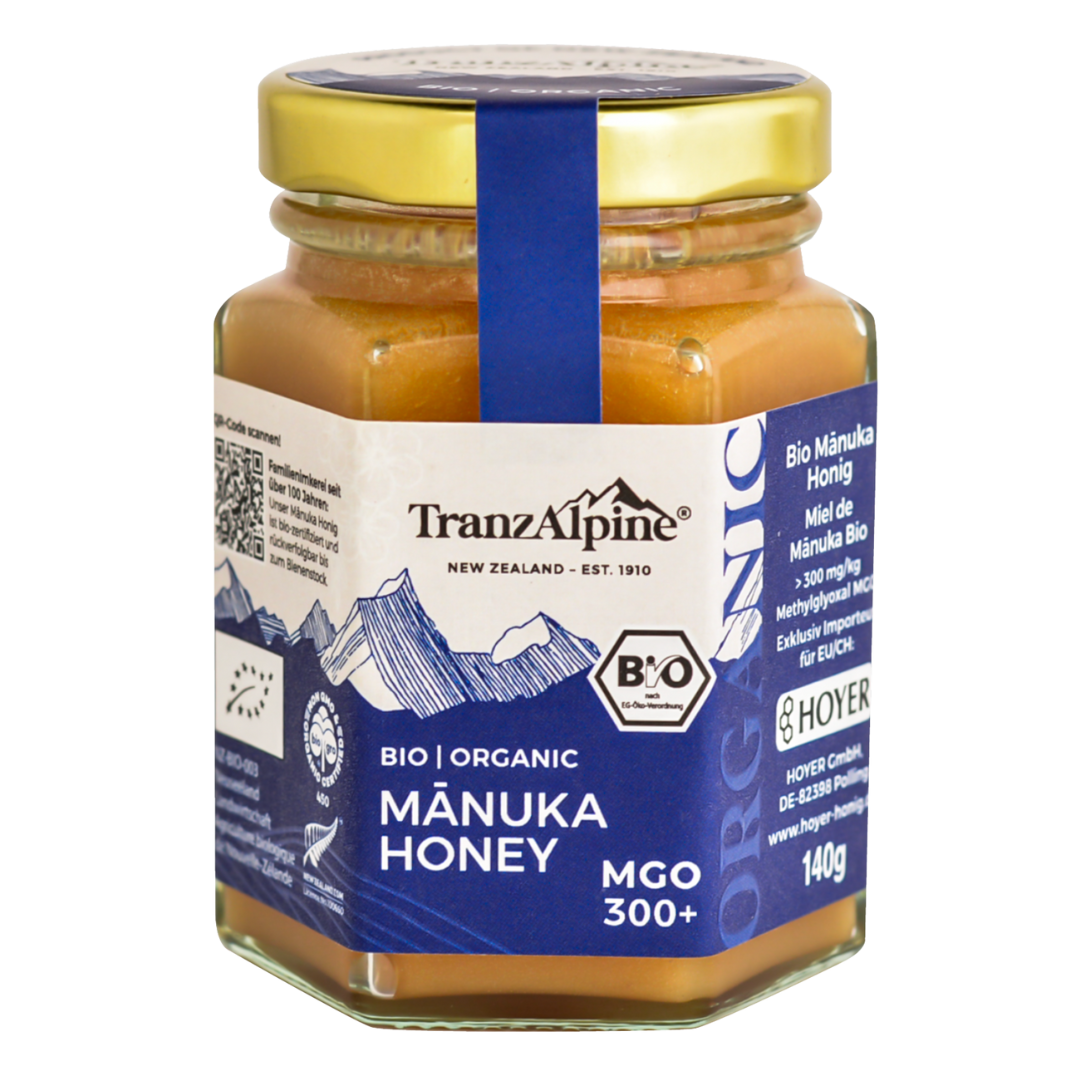
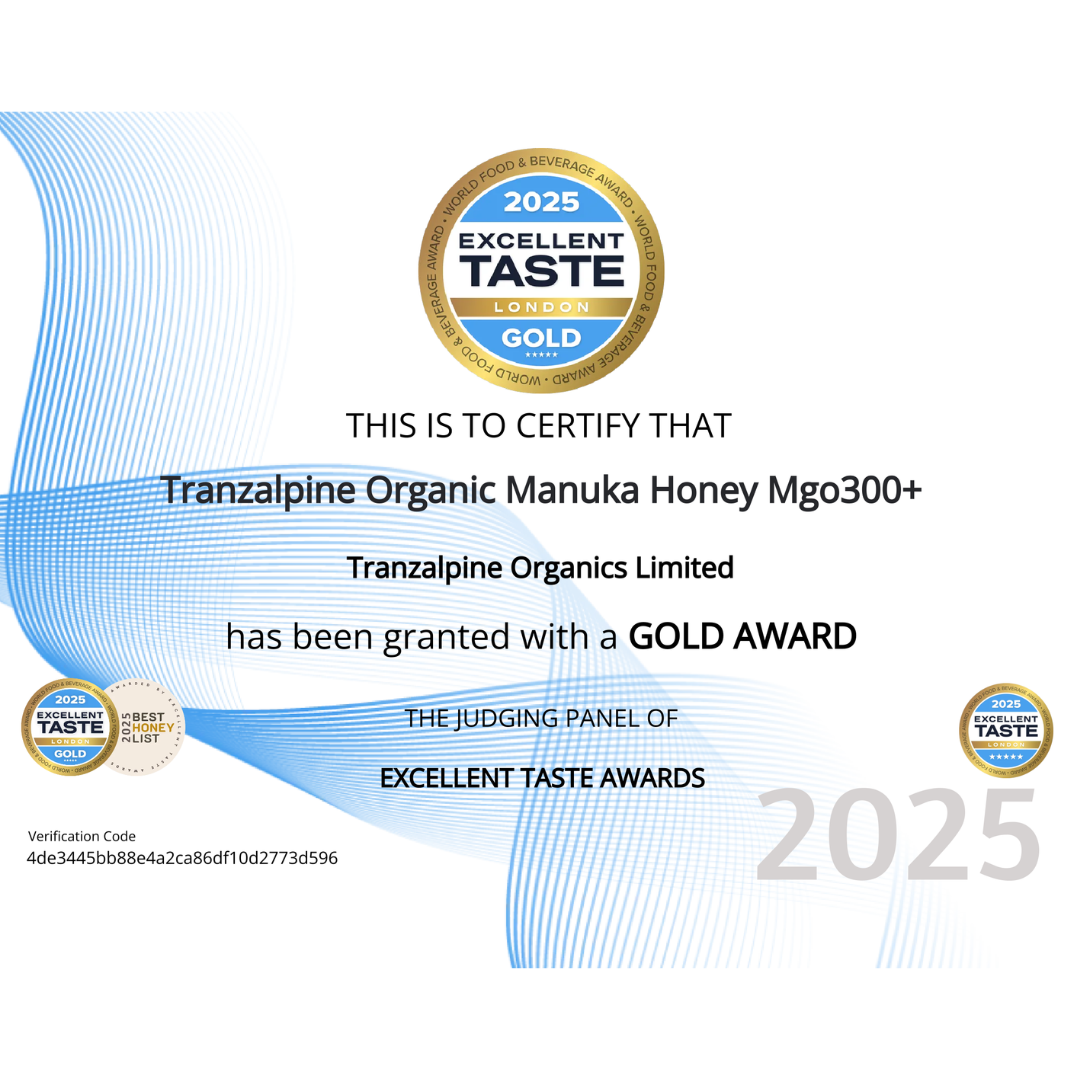 Vendor:TranzAlpine Organic Manuka Honey MGO 300+TranzAlpine
Vendor:TranzAlpine Organic Manuka Honey MGO 300+TranzAlpine- Regular price
-
€26,99 - Regular price
-
- Sale price
-
€26,99 - Unit price
-
€192,79 per kg

Quick view
-
TranzAlpine Organic Manuka Honey MGO 550+
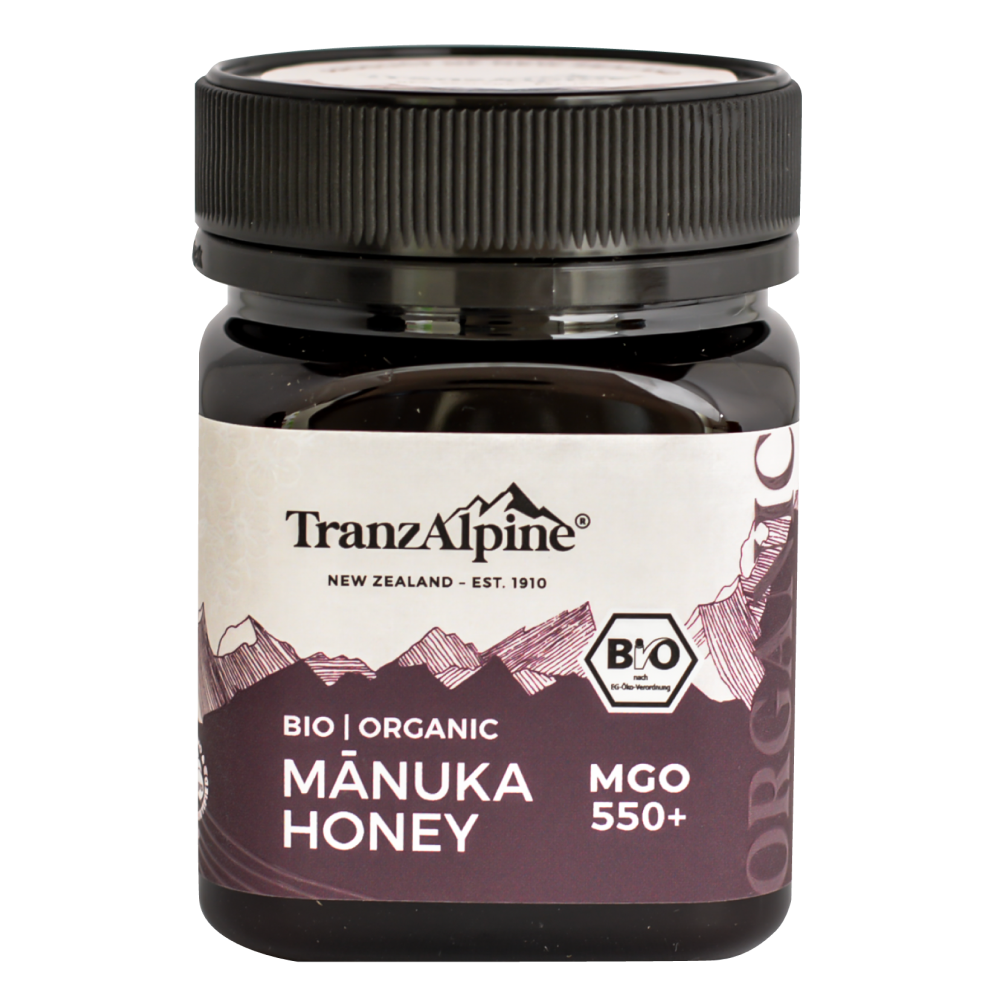
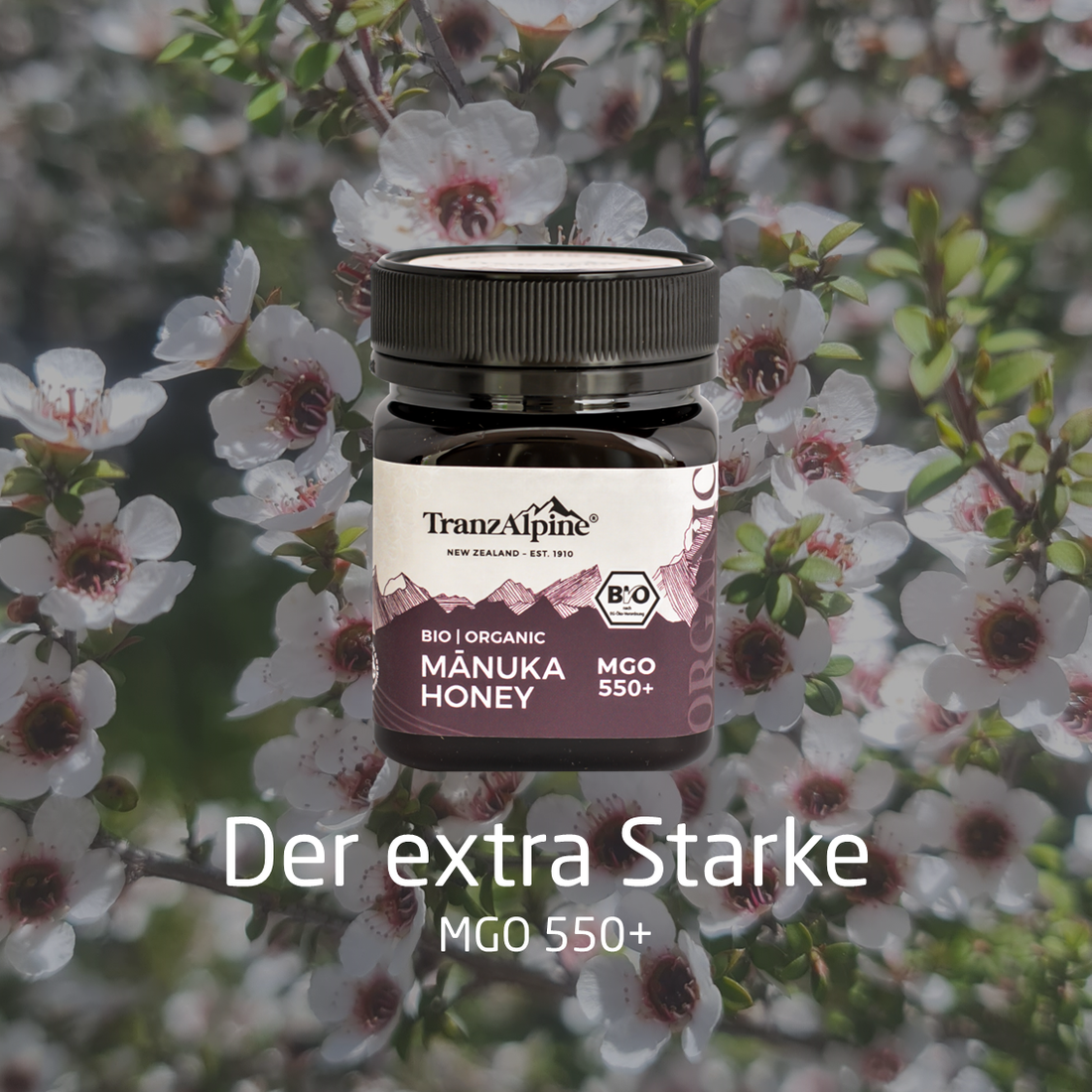 Vendor:TranzAlpine Organic Manuka Honey MGO 550+TranzAlpine
Vendor:TranzAlpine Organic Manuka Honey MGO 550+TranzAlpine- Regular price
-
€84,99 - Regular price
-
- Sale price
-
€84,99 - Unit price
-
€339,96 per kg

Quick view
-
TranzAlpine Organic Manuka Honey MGO 100+
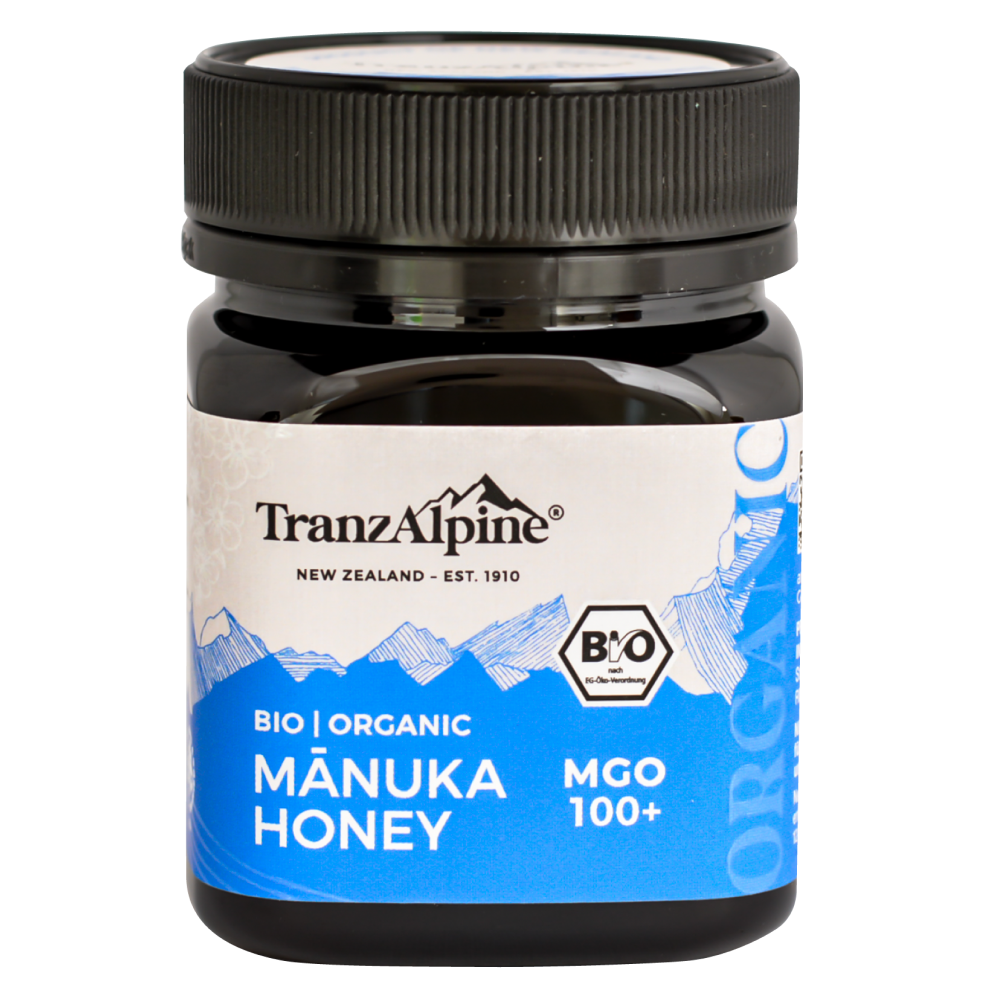
 Vendor:TranzAlpine Organic Manuka Honey MGO 100+TranzAlpine
Vendor:TranzAlpine Organic Manuka Honey MGO 100+TranzAlpine- Regular price
-
€23,99 - Regular price
-
- Sale price
-
€23,99 - Unit price
-
€95,96 per kg

Quick view
-
Manuka honey + propolis spray alcohol-free
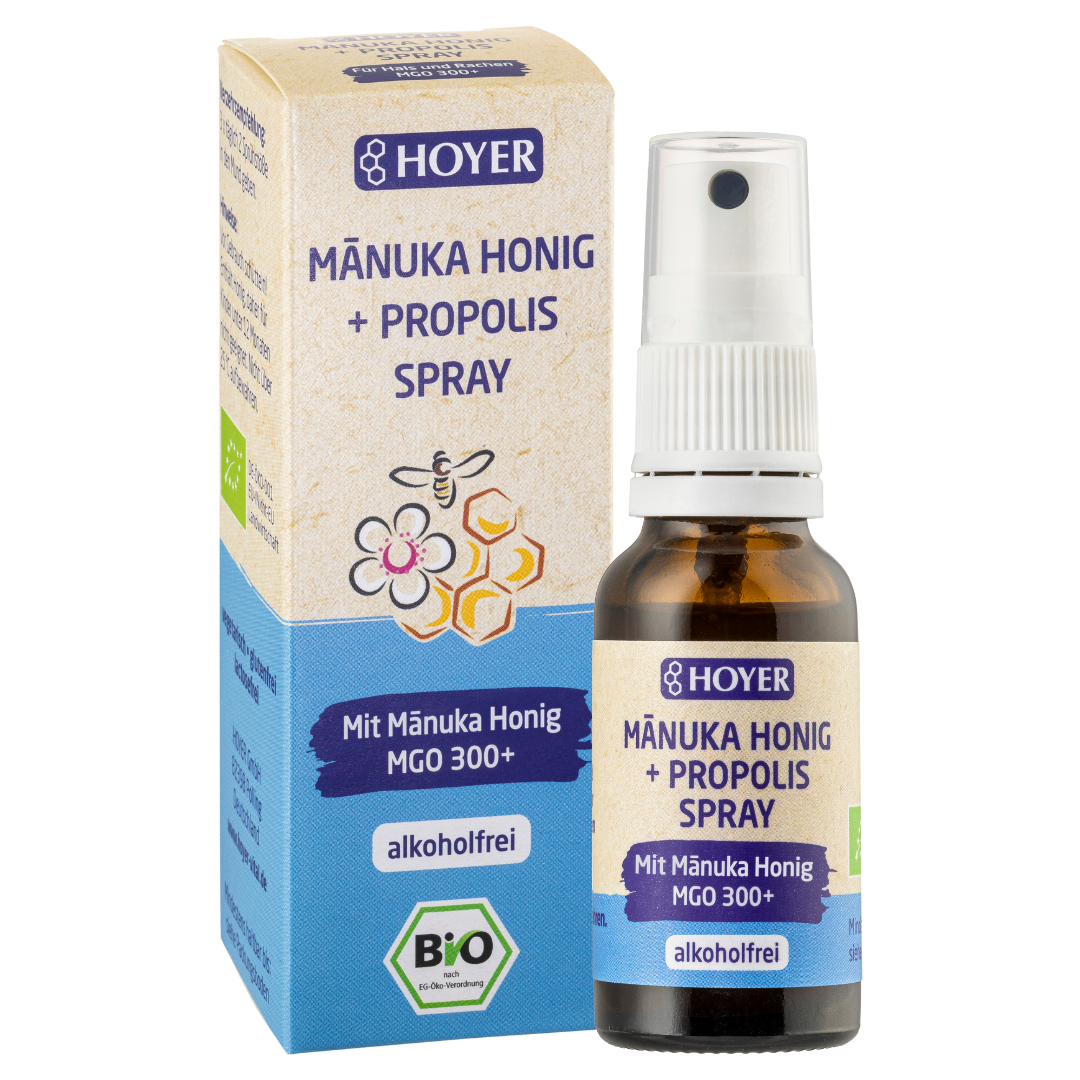
 Vendor:Manuka honey + propolis spray alcohol-freeHoyer
Vendor:Manuka honey + propolis spray alcohol-freeHoyer- Regular price
-
€9,99 - Regular price
-
- Sale price
-
€9,99 - Unit price
-
€499,50 per l

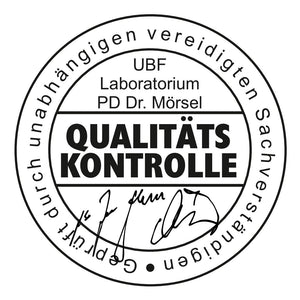
Quick view
-
Manuka honey liquid sticks MGO 250+
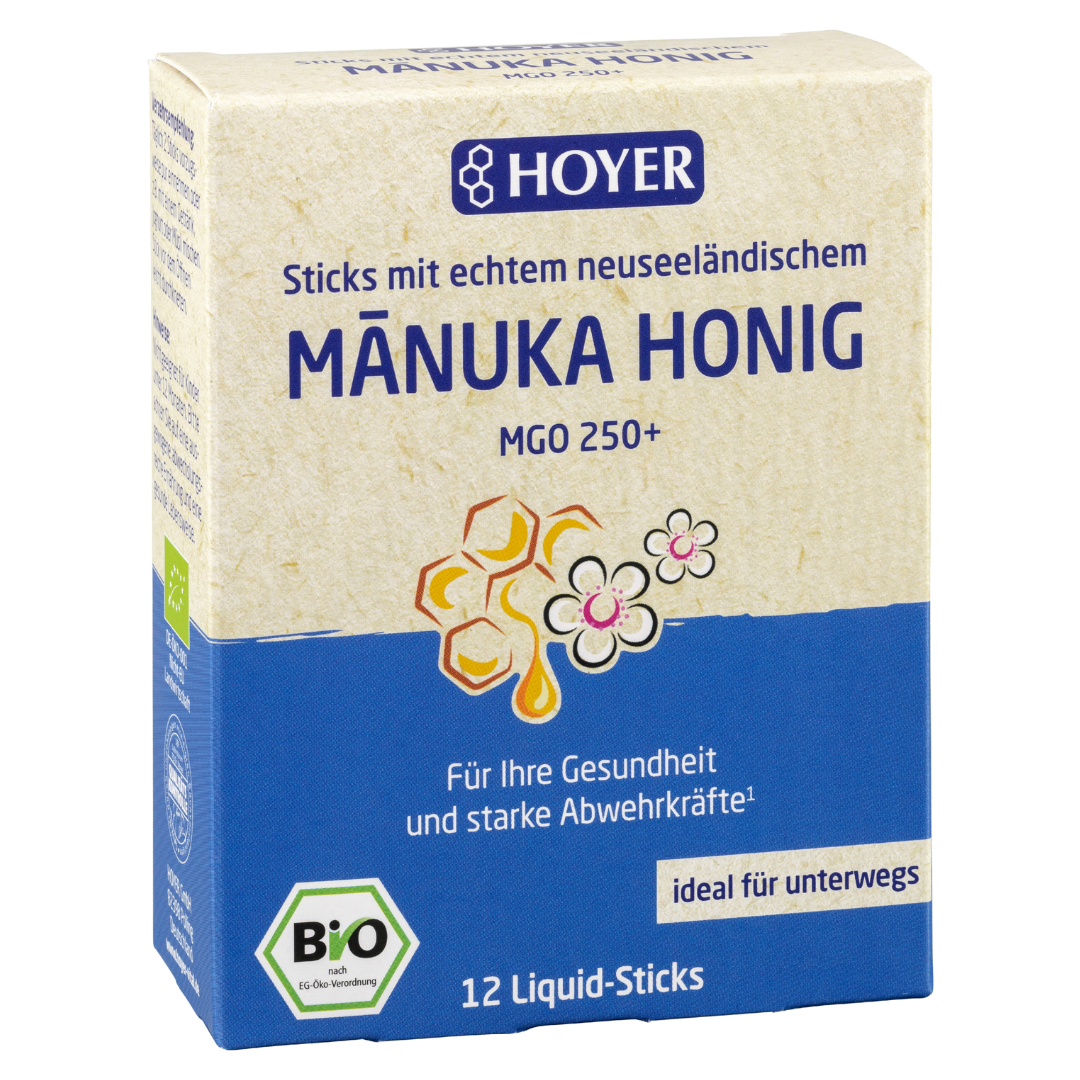
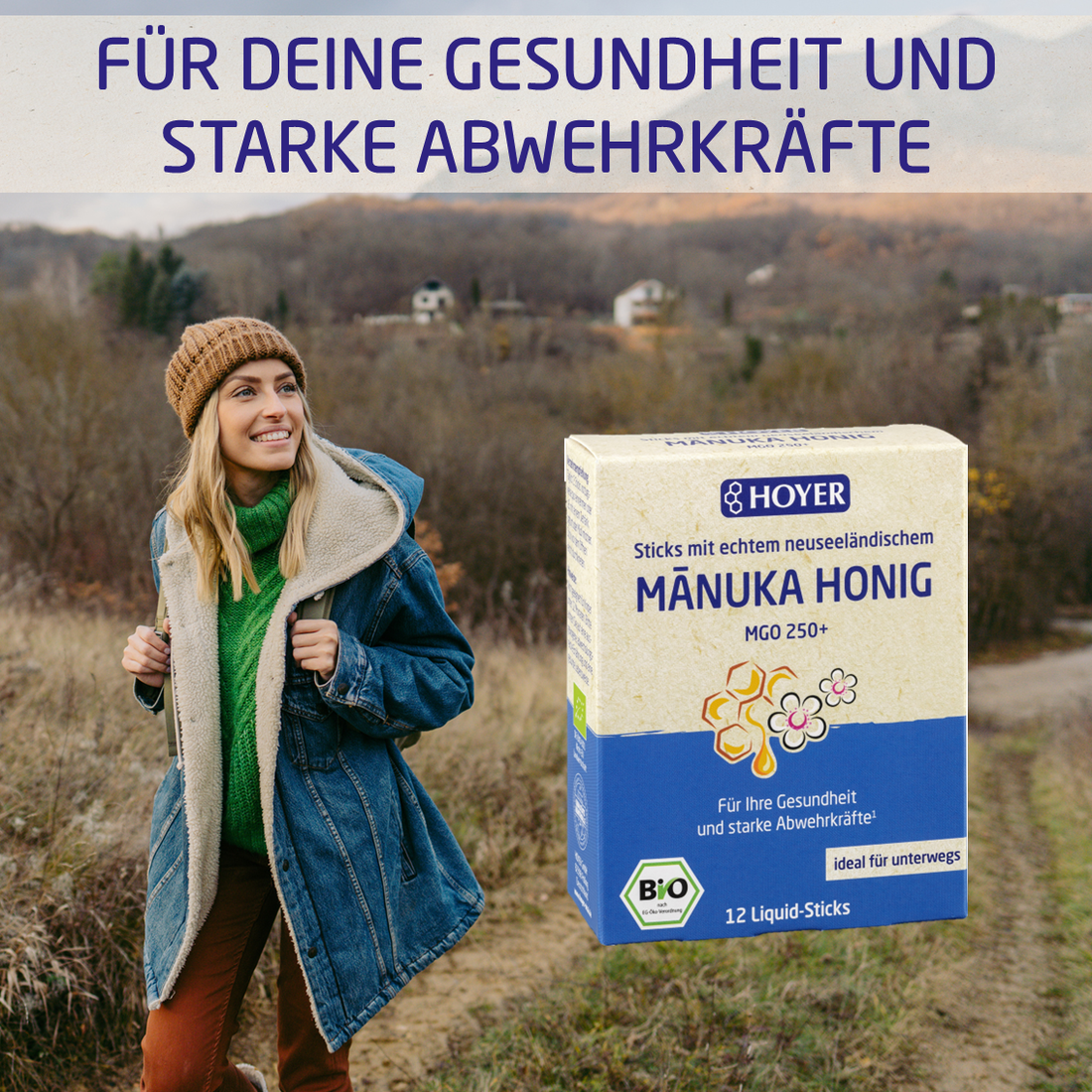 Vendor:Manuka honey liquid sticks MGO 250+Hoyer
Vendor:Manuka honey liquid sticks MGO 250+Hoyer- Regular price
-
€9,99 - Regular price
-
- Sale price
-
€9,99 - Unit price
-
€104,06 per kg


Quick view
-
Manuka Honey Throat Pastilles Lemon Balm
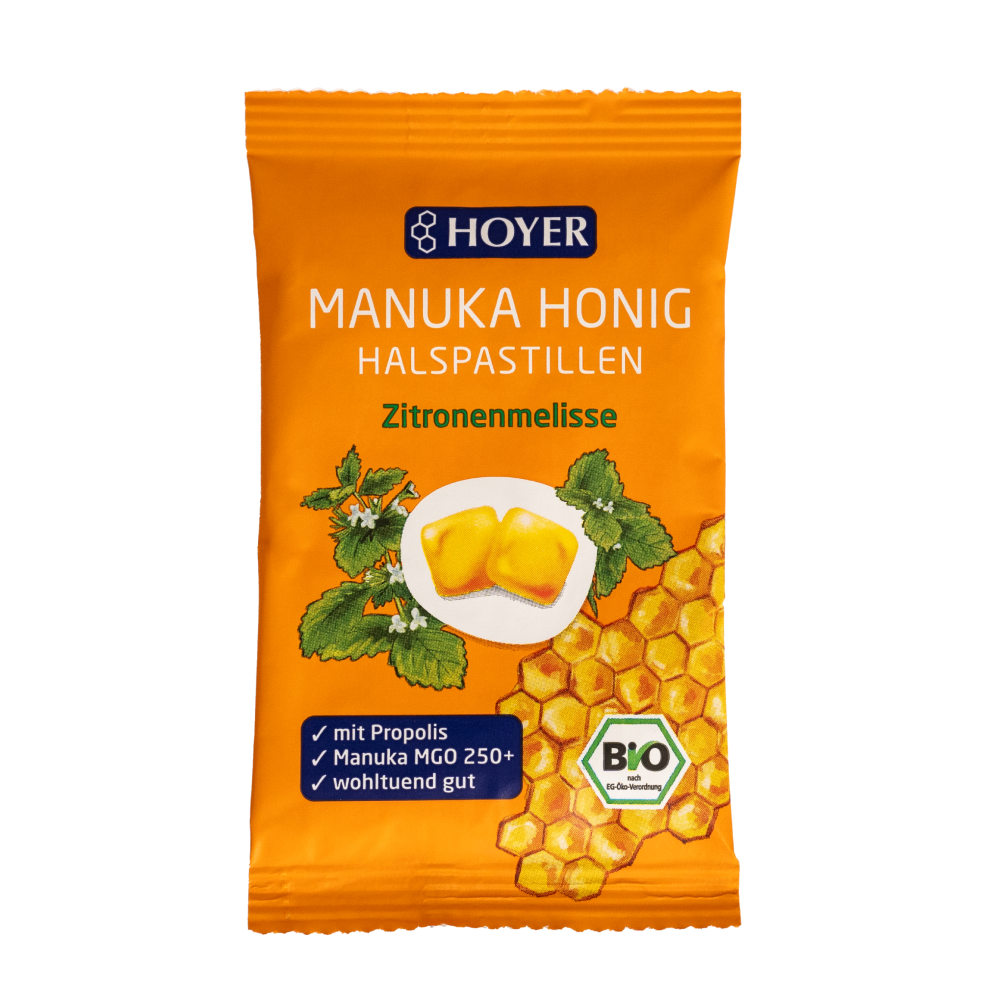
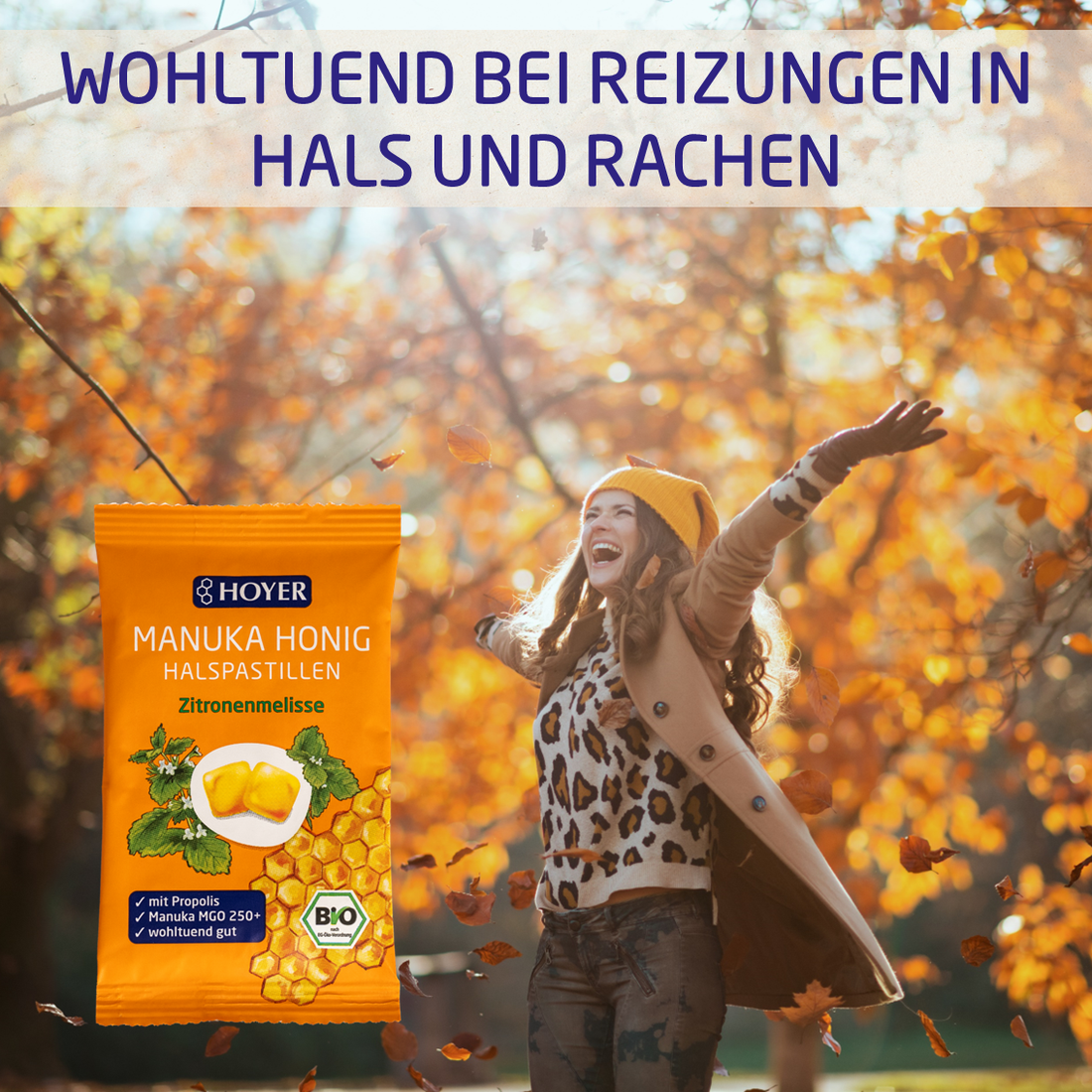 Vendor:Manuka Honey Throat Pastilles Lemon BalmHoyer
Vendor:Manuka Honey Throat Pastilles Lemon BalmHoyer- Regular price
-
€2,99 - Regular price
-
- Sale price
-
€2,99 - Unit price
-
€99,67 per kg

Quick view
-
Manuka Honey Throat Pastilles Cassis
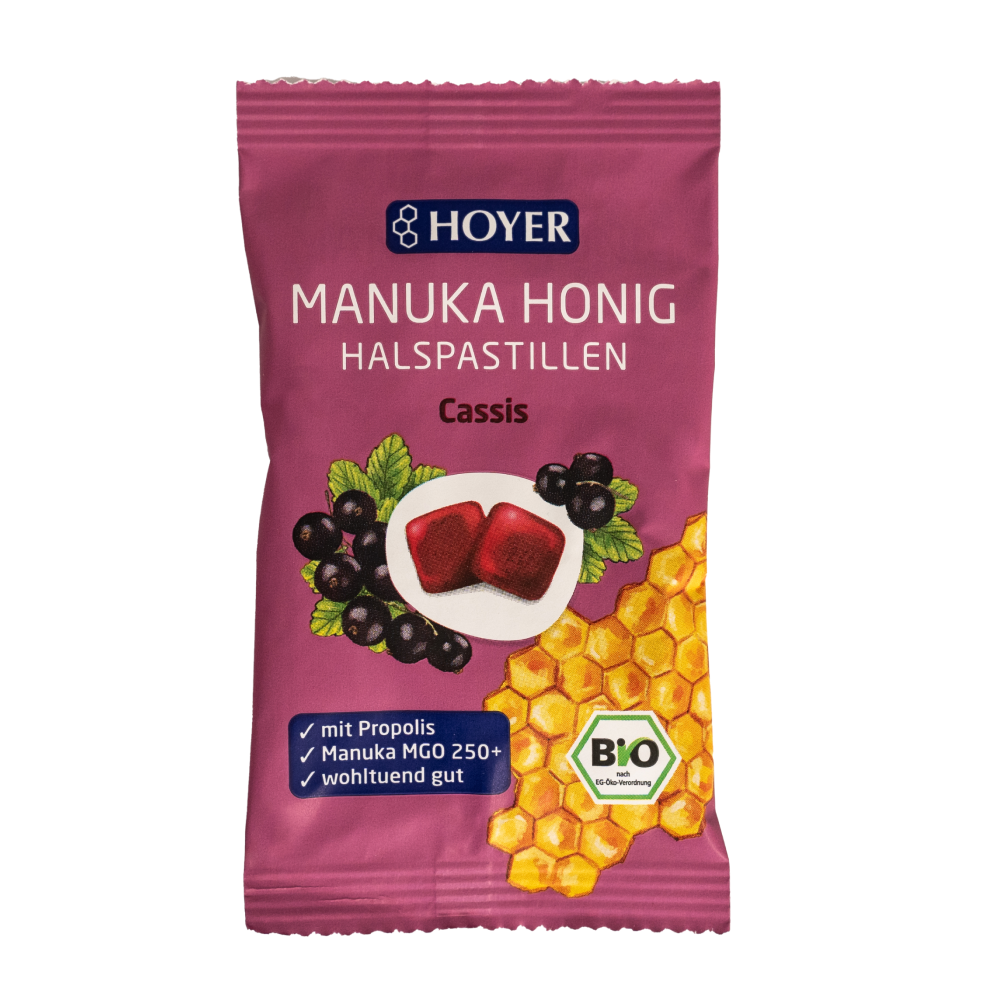
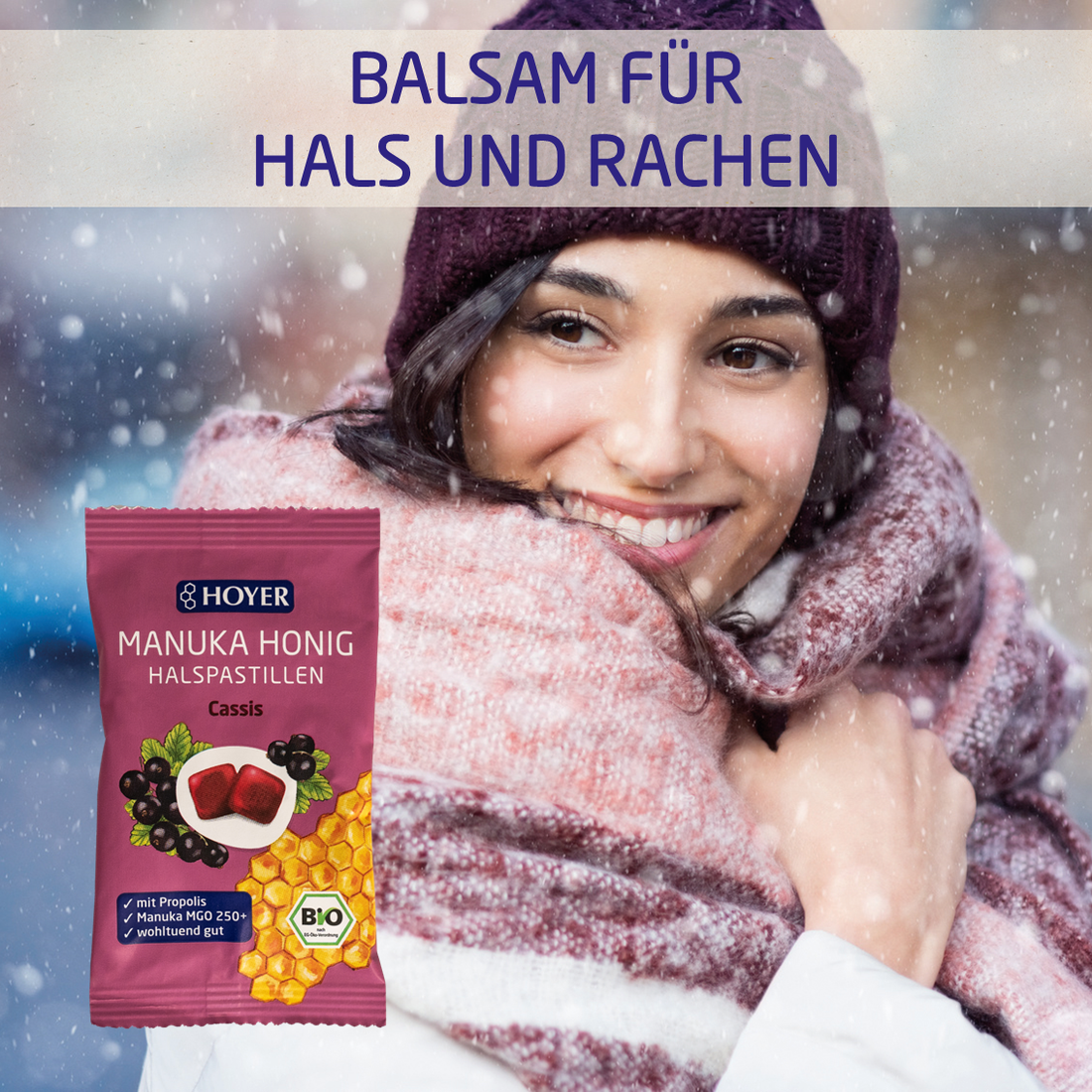 Vendor:Manuka Honey Throat Pastilles CassisHoyer
Vendor:Manuka Honey Throat Pastilles CassisHoyer- Regular price
-
€2,99 - Regular price
-
- Sale price
-
€2,99 - Unit price
-
€99,67 per kg

Quick view
-
Manuka Honey Throat Pastilles Herbs
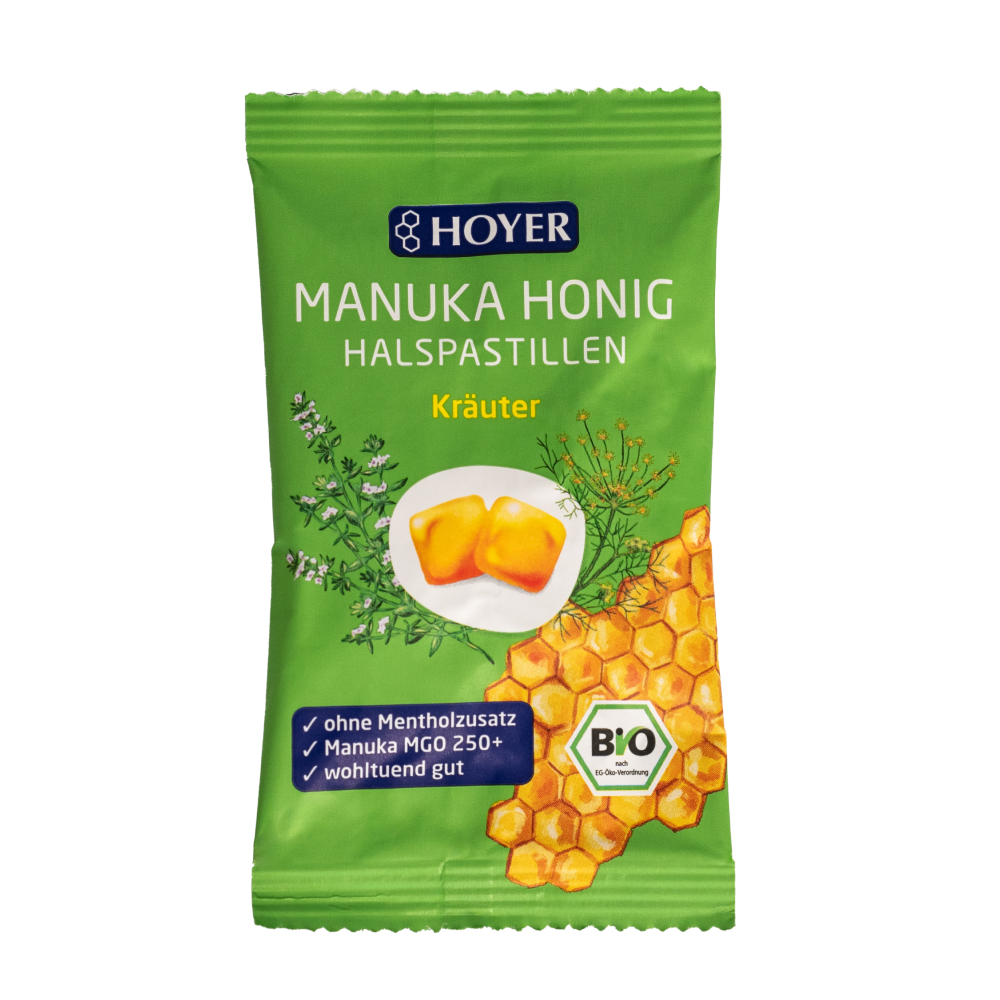
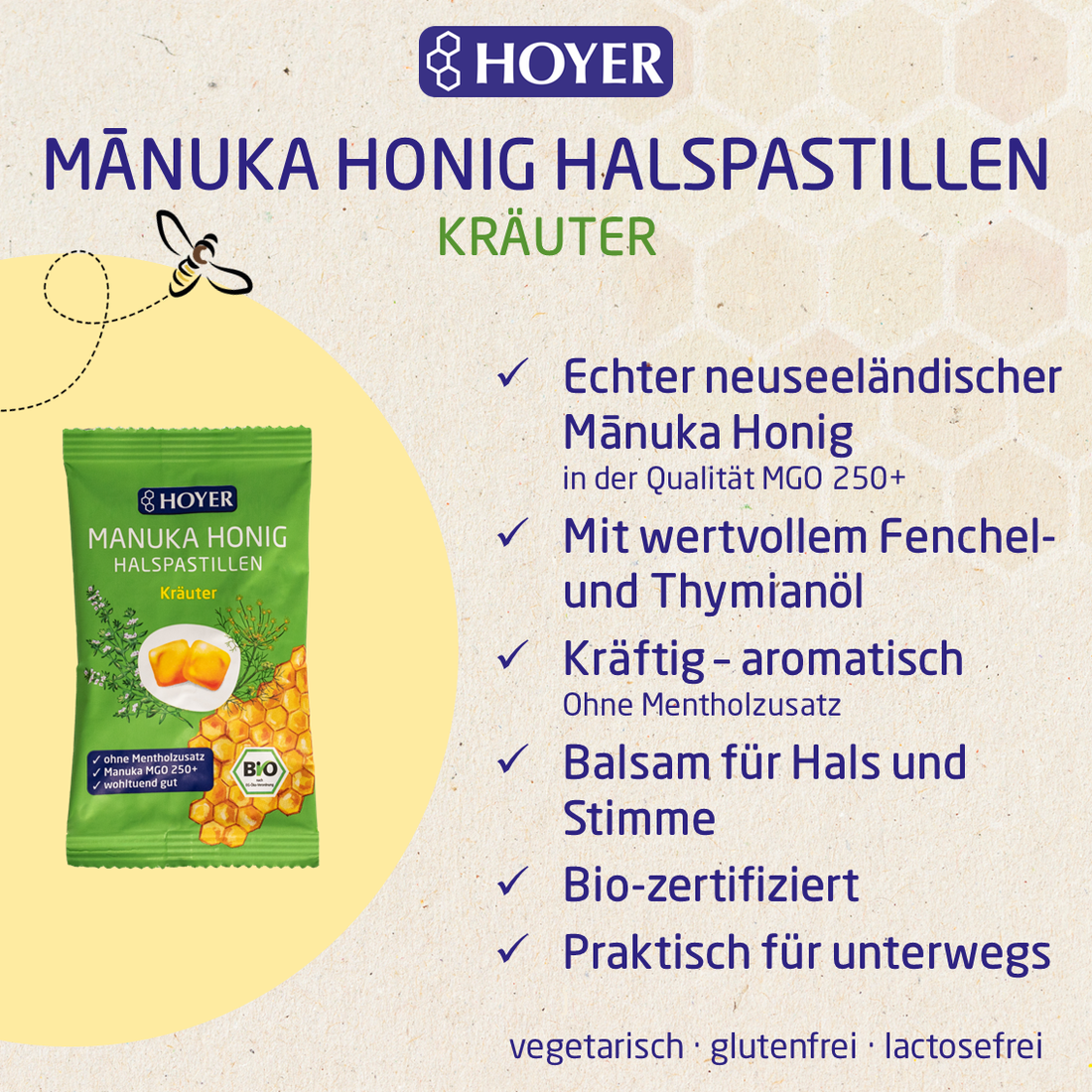 Vendor:Manuka Honey Throat Pastilles HerbsHoyer
Vendor:Manuka Honey Throat Pastilles HerbsHoyer- Regular price
-
€2,99 - Regular price
-
- Sale price
-
€2,99 - Unit price
-
€99,67 per kg

Quick view
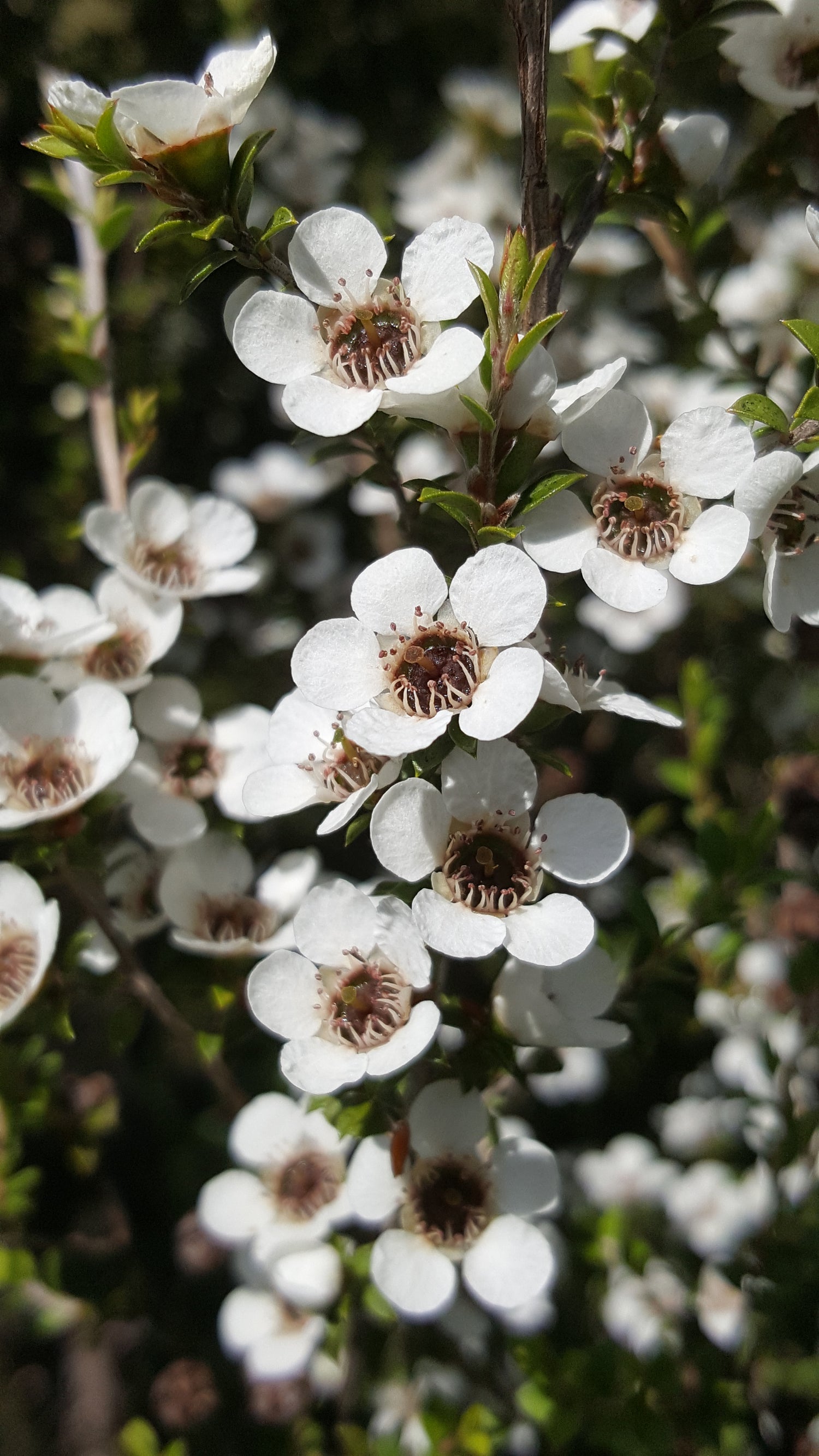
What makes Manuka honey so special?
FAQ - Frequently asked questions about our Manuka honey
What is Manuka honey?
Manuka honey is a special honey made from the nectar of the flowers of the South Sea myrtle or manuka shrub (Leptospermum scoparium). This shrub grows almost exclusively in New Zealand.
Manuka honey is primarily known for its exceptional properties.
What makes Manuka honey so special?
Manuka honey occupies an outstanding special position due to its unusually high activity. The Institute of Food Chemistry at TU Dresden has identified the active ingredient that is primarily responsible for this: methylglyoxal (MGO). In contrast to normal honey, only New Zealand Manuka honey contains a significantly high level:
❗️Other honeys: 0 to 20 mg/kg MGO
❗️Manuka honeys: 20 to 800 mg/kg MGO
How do I use Manuka honey?
Manuka honey is traditionally used externally and internally.
Enjoy Manuka honey pure from the spoon and let it melt slowly on your tongue.
Like other honey, you can of course also add Manuka honey to bread, muesli or smoothies. As MGO is heat-resistant, you can also stir the honey into tea without any problems. However, wait until the tea has cooled down to drinking temperature, as other ingredients in the honey are destroyed above around 40°C.
How much Manuka honey should I eat a day?
It is recommended to take one teaspoon daily to support general well-being.
When used in a targeted manner, it can be used according to personal needs. Manuka honey is a natural product.
Why is Manuka honey so expensive?
In addition to the valuable ingredient methylglyoxal, the limited natural occurrence of the South Sea myrtle contributes to the higher price of manuka honey. The manuka plant grows almost exclusively in New Zealand and only flowers for a few weeks a year, which means that the bees only have a short period of time to collect nectar.
In addition, the bees that produce manuka honey have to be taken to remote and sometimes hard-to-reach areas, as the shrub does not grow everywhere.
How was Manuka honey discovered?
The South Sea myrtle, also known as manuka (from Māori: Mānuka), is a shrub plant related to the Australian tea tree and is almost exclusively native to New Zealand. Manuka has been used by the Maori, the indigenous people of New Zealand, for many generations.
The effects of manuka honey first attracted attention in the 1930s when New Zealand dairy farmers fed it to their cows and noticed that they suffered significantly fewer illnesses than cows that had not previously been fed manuka honey. Since the 1980s, scientific publications have increasingly referred to the properties of manuka honey.
In recent years, this exceptional honey has also become known in Europe thanks to further research (including at the Technical University of Dresden by Prof. Thomas Henle) and numerous media reports.
How can I recognize real Manuka honey?
You can usually recognize genuine Manuka honey by its MGO certification, which guarantees the methylglyoxal (MGO) content.
Look out for clear indications of origin from New Zealand and official seals. In the best case, it is an original bottling directly from New Zealand.
Reputable brands also offer the option of tracing the origin of the honey using a batch number or QR code to ensure authenticity.
What does MGO 250+ mean?
The indication "MGO 250+" means that it contains at least 250 mg/kg of the active ingredient methylglyoxal (MGO).
We also refer to our TranzAlpine Manuka Honey MGO 250+ as the all-rounder.
The higher the content, the more intense the honey and the taste. As is usual with natural products, the differences in the MGO values of Manuka honey are due to factors such as location, weather conditions, time of harvest, storage...
What does MGO 400+ mean?
The indication "MGO 400+" means that it contains at least 400 mg/kg of the active ingredient methylglyoxal (MGO).
We also refer to our TranzAlpine Manuka Honey MGO 400+ as the strong one.
The higher the content, the more intense the honey and the taste. As is usual with natural products, the differences in the MGO values of Manuka honey are due to factors such as location, weather conditions, time of harvest, storage...
What does MGO 300+ mean?
The indication "MGO 300+" means that it contains at least 300 mg/kg of the active ingredient methylglyoxal (MGO).
We also refer to our TranzAlpine Manuka Honey MGO 300+ as the little powerful one.
The higher the content, the more intense the honey and the taste. As is usual with natural products, the differences in the MGO values of Manuka honey are due to factors such as location, weather conditions, time of harvest, storage...
What does MGO 550+ mean?
The indication "MGO 550+" means that it contains at least 550 mg/kg of the active ingredient methylglyoxal (MGO).
We also refer to our TranzAlpine Manuka Honey MGO 550+ as the extra strong.
The higher the content, the more intense the honey and the taste. As is usual with natural products, the differences in the MGO values of Manuka honey are due to factors such as location, weather conditions, time of harvest, storage...
What does MGO 100+ mean?
The indication "MGO 100+" means that it contains at least 100 mg/kg of the active ingredient methylglyoxal (MGO).
We also refer to our TranzAlpine Manuka Honey MGO 100+ as the entry-level honey.
The higher the content, the more intense the honey and the taste. As is usual with natural products, the differences in the MGO values of Manuka honey are due to factors such as location, weather conditions, time of harvest, storage...
You can find more information on the website of our New Zealand partner apiary:
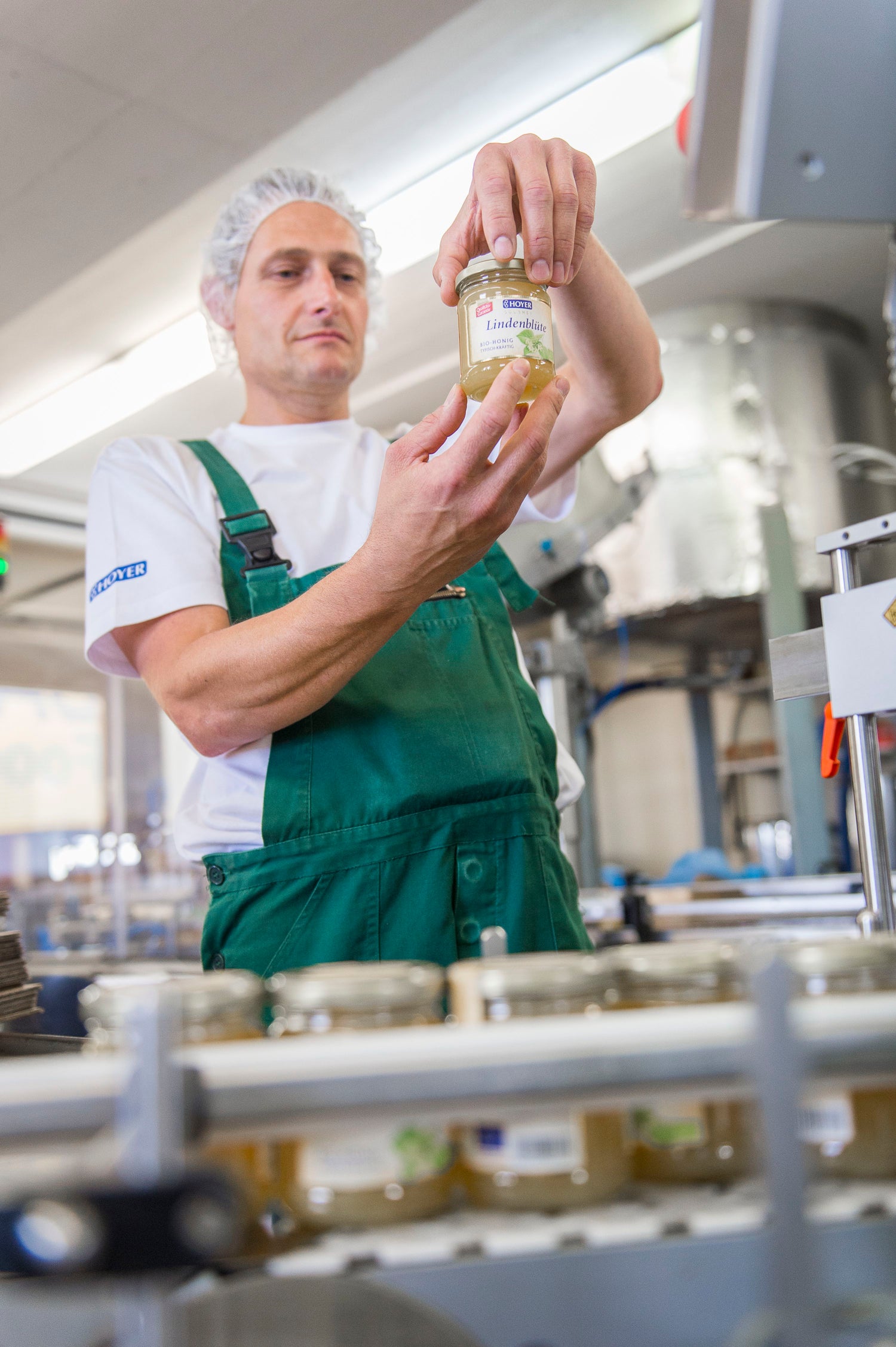
With the power of nature
HOYER
Founded in 1969 as a beekeeping business in Polling, Upper Bavaria, we can now look back on decades of experience from the production to the processing of high-quality beekeeping products.
HOYER stands for trust, enjoyment and reliability, and we strive to uphold and continuously develop these values.
Immerse yourself in the world of bees and enjoy honey and other beekeeping products of the best organic quality.
